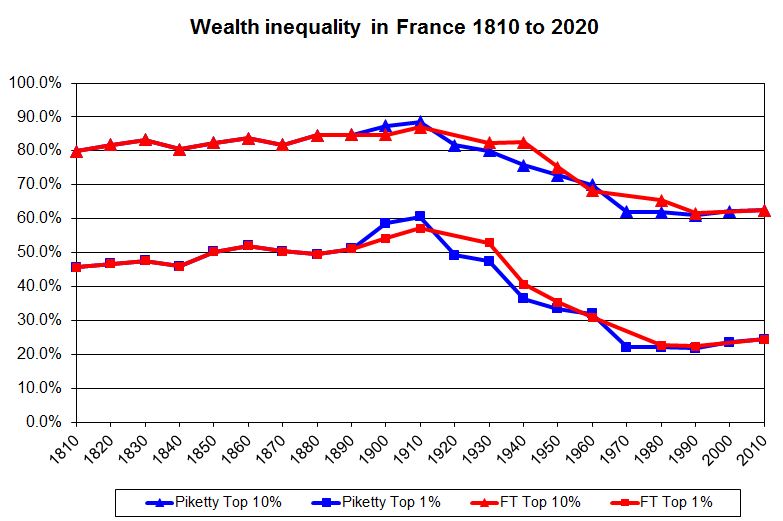I'm reading Piketty's book fairly slowly, with a bunch of others in between. Review eventually.
But a lot of debate is piling up as people take shots at it and defend it for whatever reason*. So thought it worthwhile to collect for later reference, even if much appears over my head.
First, a (paywalled so I can't read) Financial Times article seems to take aim at the data. And while I'm not going to try to venture an opinion on most of these discussions this one seems to be a bit of hatchet job, with over broad claims of massive errors while focusing on numbers which are not (or not clearly) wrong without bothering to assess their impact on the overall thesis even if they are correct†. The general claim is that Piketty's number don't support the claim that inequality has increased.
Lefty anti-capitalist article from
Bloomberg has the most news-like take down, quoting experts to rebut the claim in non-opinion format. Krugman and others cover the obvious point that the increase in inequality--especially in the US--has been established by multiple data sources so picking on a single series isn't exactly withering. Slate's Moneybox covers the dispute in a few posts today.
Yglesias has charts, showing both the irrelevant nitpicking in France and the potentially interesting debate about UK numbers.

The red are the FT numbers and the blue is the Piketty line. They don't seem huge shifts in either case at this scale. Though to be clear the FT numbers for the UK show no upwards trend in any series so there is a question of how Piketty has deduced there is one.
*"For whatever reason" of course includes but is not limited to criticism motivated by finding substantial errors. It's clear the political argument and trendiness of the work gives people a big incentive to find problems with it or point out that their observations made earlier are more insightful. As Henry Farrell at CT points out, many who "might have found the book interesting had it been an academic exercise" respond differently when there are higher real world stakes involved--which doesn't mean they are wrong, of course.
†Sooner or later I need to write my 'Science Haters' Guide to Science Criticism' and include this ploy as one of the key moves.

